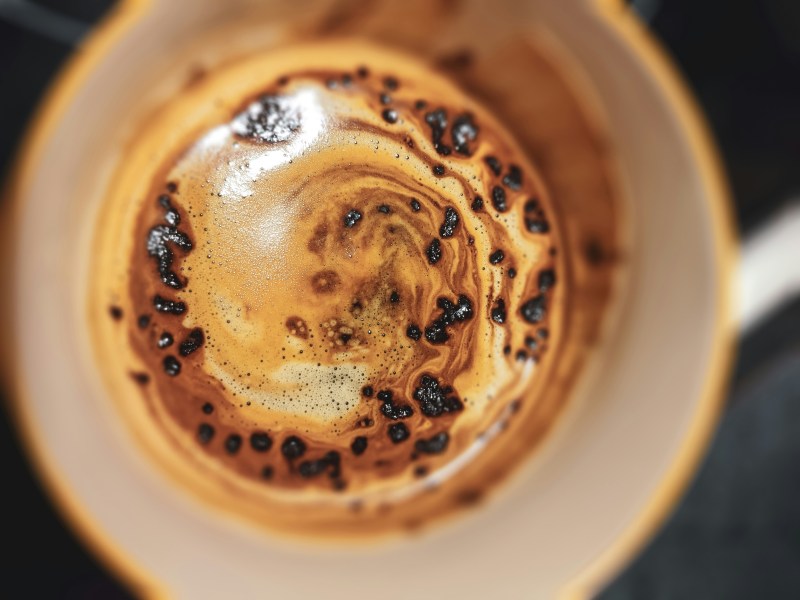The question of “Can coffee really be good for you?” sparks an age-old debate, yet the answer to this question has changed since the emergence of functional coffee in recent years.
Coffee, a daily ritual that feels essential, can sometimes work against your health goals, leading to jitters, digestive issues, and energy crashes. But Registered Dietitian Molly Kimball, RD, CSSD, says this doesn’t have to be true and that coffee can, in fact, be good for you — especially if you make the switch to functional coffee. Here’s what she shared about drinking functional coffee and its benefits.
Why coffee is sometimes perceived as bad for you

Many people experience digestive issues or the caffeine jitters when consuming regular coffee, Kimball says.
“Caffeine stimulates our nervous system and can temporarily raise cortisol and adrenaline – that’s part of what gives us the ‘buzz’. In sensitive individuals, though, it feels more like the jitters, not just good energy. In our gut, coffee increases gastric acid secretion and GI motility, which some people love (it keeps things moving) and others… not so much,” she shares.
However, this doesn’t mean that consuming coffee is always problematic. For those prone to GI upset, Kimball recommends experimenting with smaller amounts at a time, consuming it with food, and trying darker roasts or cold brews. Switching to functional coffee blends with lower caffeine and ingredients like L-theanine and mushrooms also offers a gentler, healthier option for those sensitive to traditional coffee. But how exactly can this type of coffee actually be good for us?
Functional coffee benefits

From improved gut health to a boost in mood, Kimball shares multiple ways coffee can actually support our health:
Hair, skin, and nails
“Hydrolyzed collagen has the strongest human data here – multiple randomized trials show improvements in skin hydration and elasticity, with emerging (but mixed) data on fine lines,” she shares. “Chaga and lion’s mane bring antioxidant and beta-glucan compounds; most of the skin-hair-nails evidence is preliminary and indirect (more related to inflammation and oxidative stress pathways).”
Gut health and digestion
Functional coffee can also impact gut motility, positively influencing the microbiome. Some people find that lower-acid, mushroom-fortified coffee may sit better with their stomach, allowing them to maintain a more consistent routine (such as Everyday Dose’s coffee, which pairs mushrooms and coffee in a lower-acid format that is gentler on the stomach)
Mental health
“Multiple controlled studies show that caffeine plus L-theanine can improve attention, reaction time, and task accuracy versus placebo or either alone,” says Kimball.
As such, switching to functional coffee could help deliver a calmer focus instead of the jitters and that “revved up” feeling. In addition, adaptogens like ashwagandha aim to support our stress response, which could also improve sleep in the short term. Many functional coffees also include L-theanine, a nootropic that targets cognition, smoothing the edge of drinking coffee while supporting an attention boost.
Taking advantage of the benefits of functional coffee

Is there a consensus on whether coffee can really be good for you? I say yes, along with Kimball, though it depends on how much coffee you’re drinking and what type of coffee you’re drinking.
For coffee drinkers who want to get the most out of their cup, Kimball recommends switching to a functional coffee that delivers a calm focus. “I like formulas that pair moderate caffeine with L-theanine, add hydrolyzed collagen (skin/joint support), and include lion’s mane and chaga for a functional boost,” she shares.




